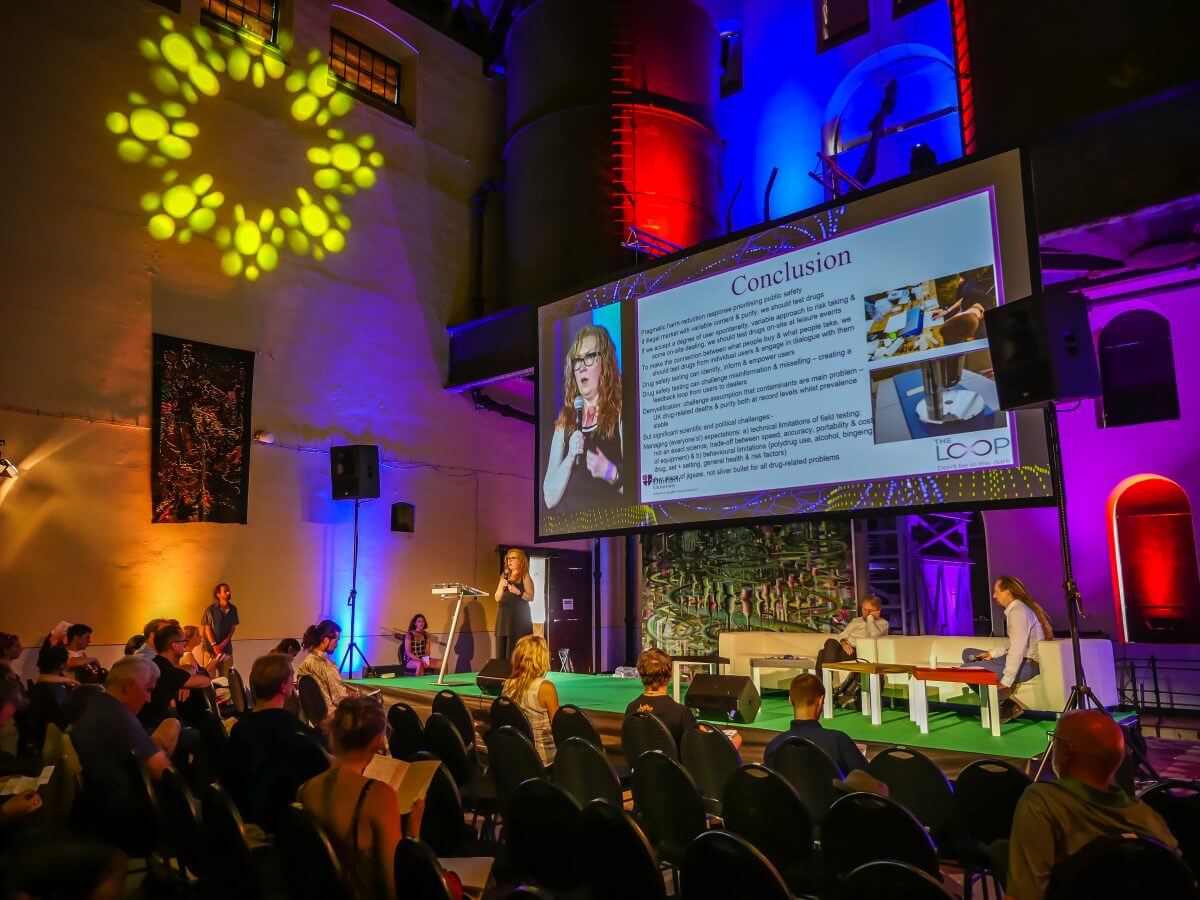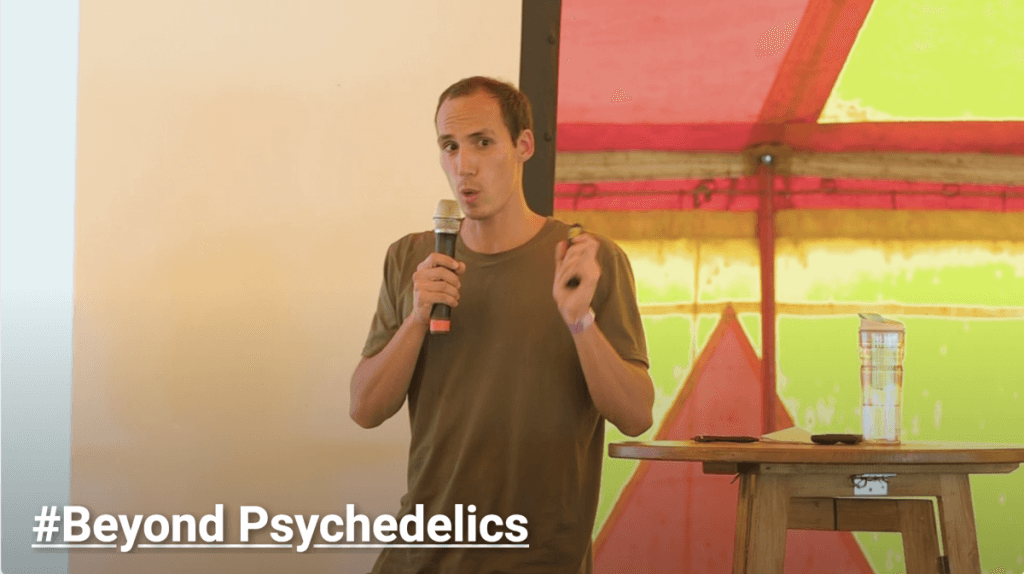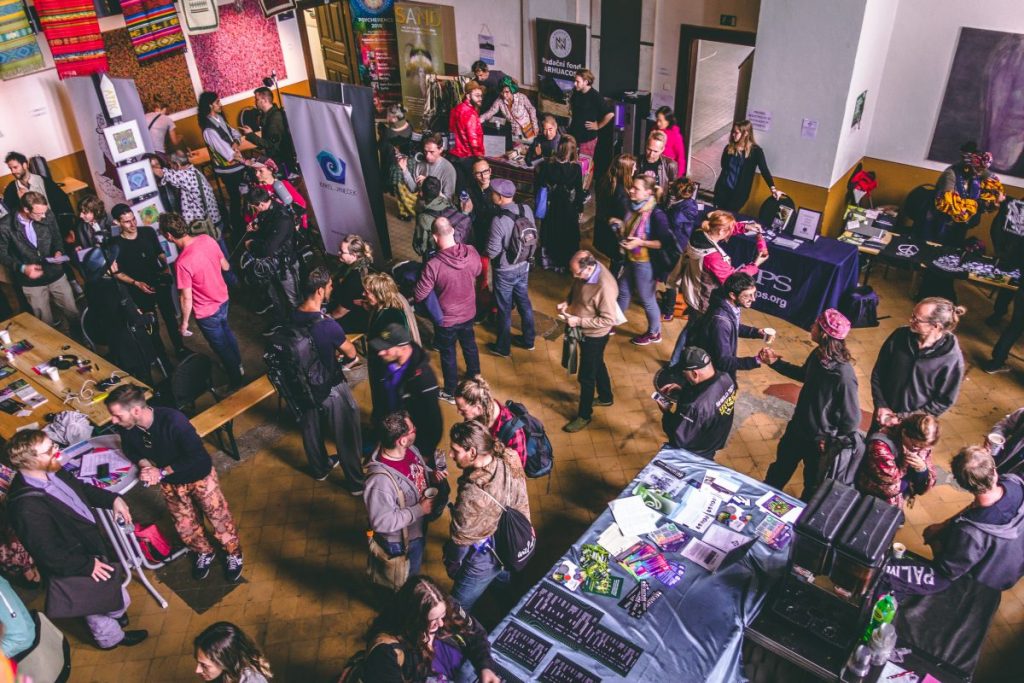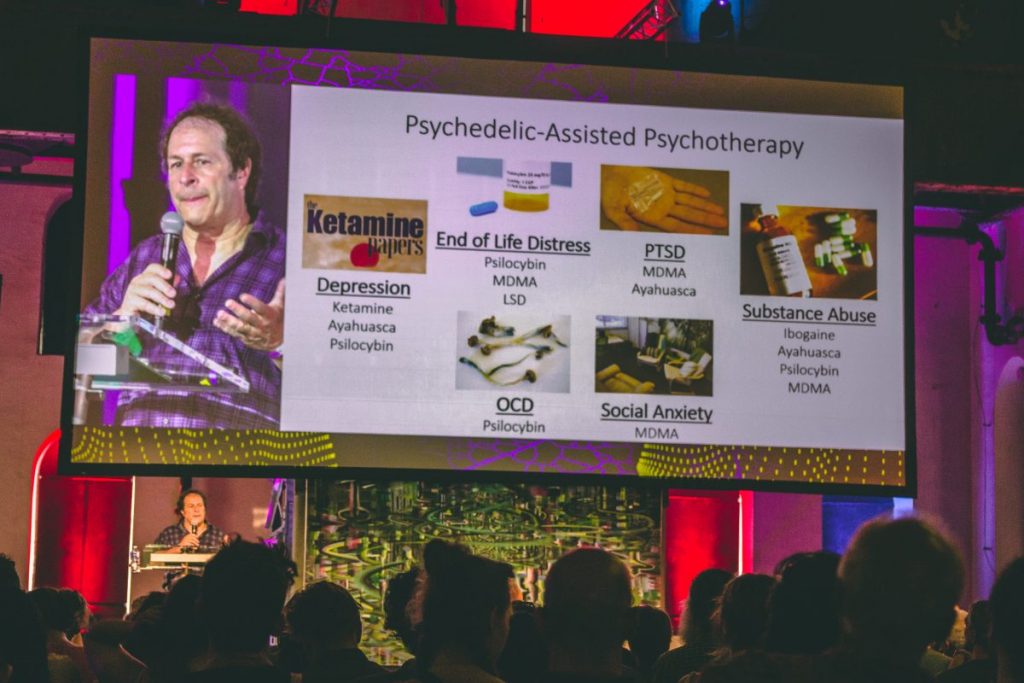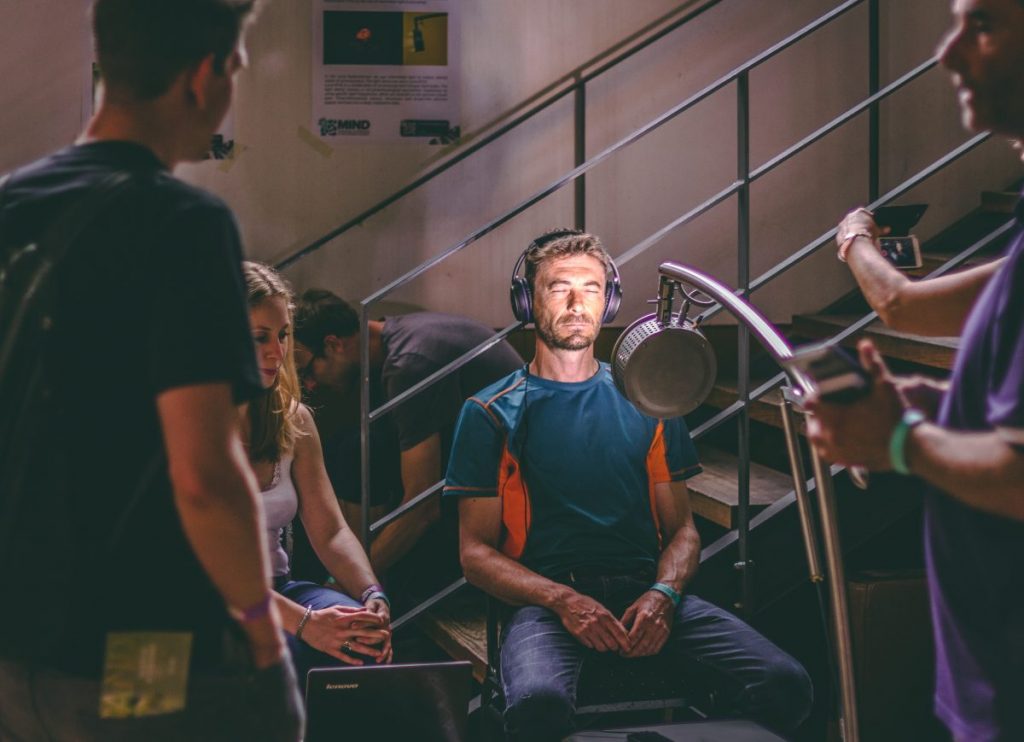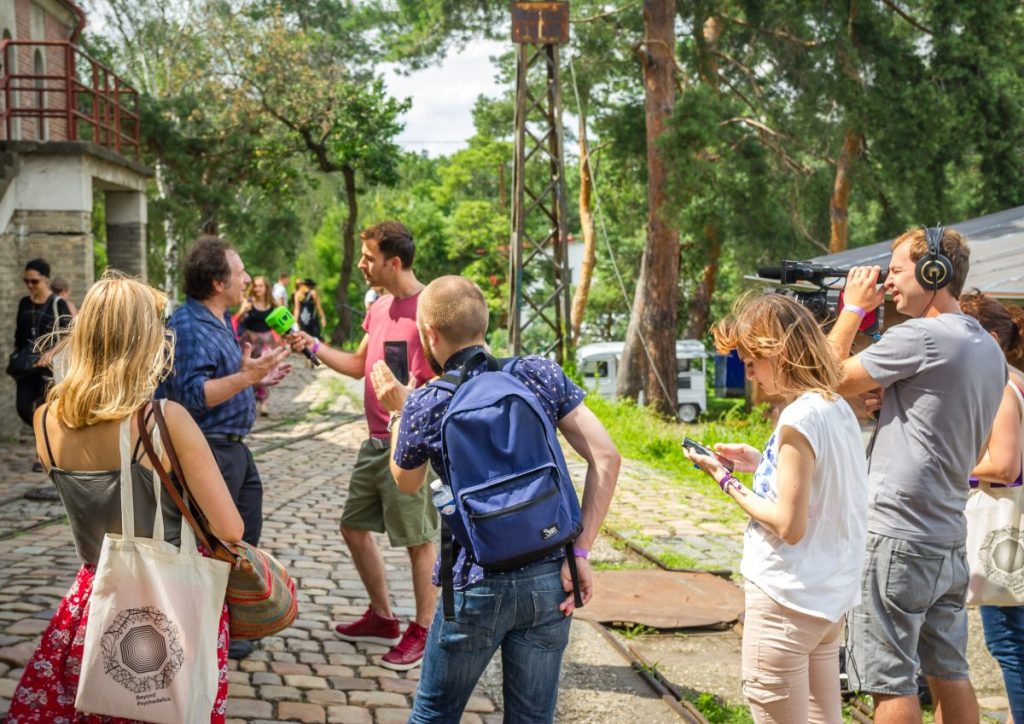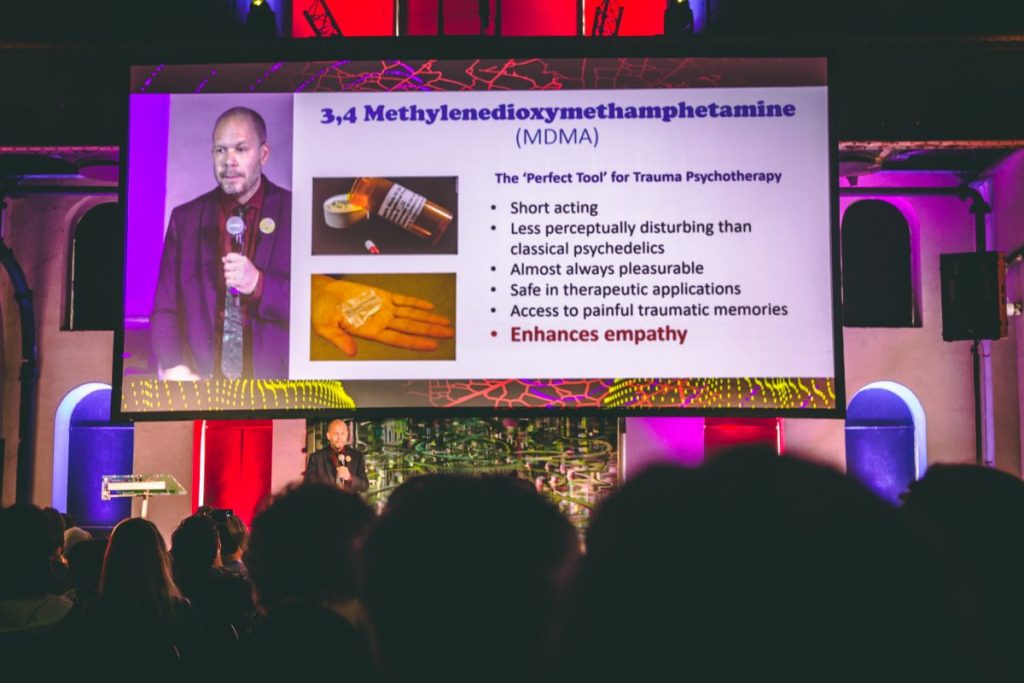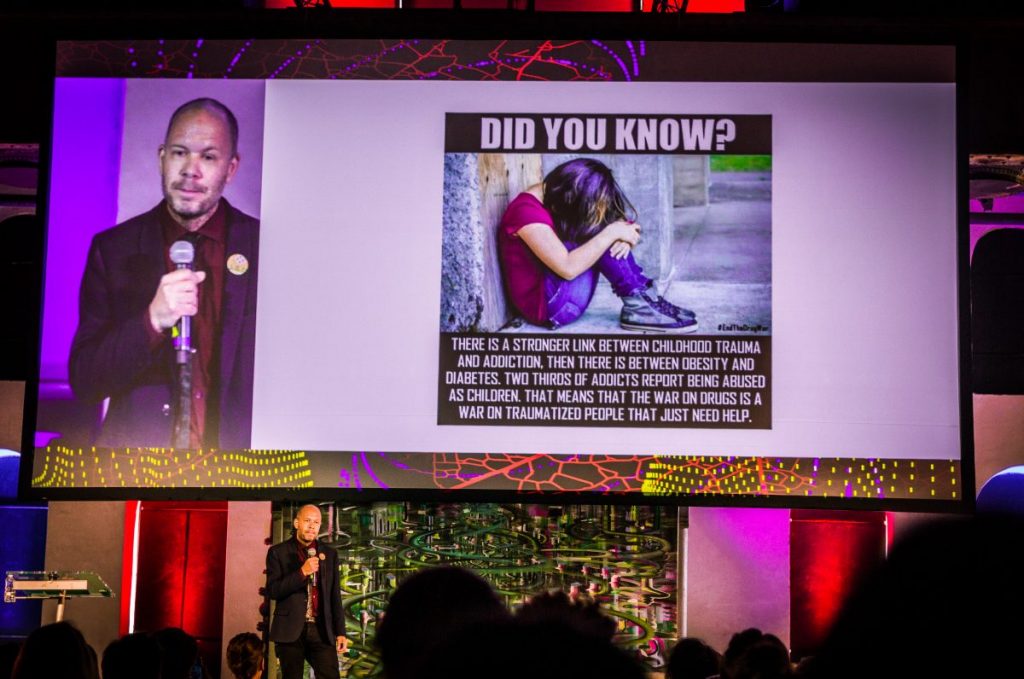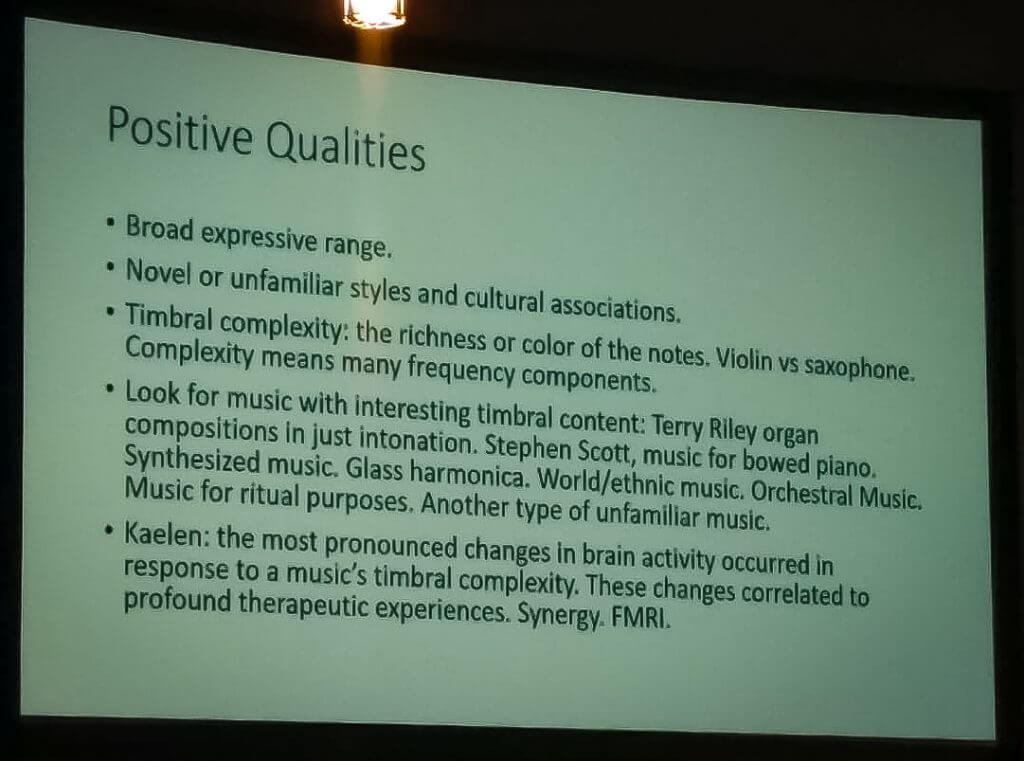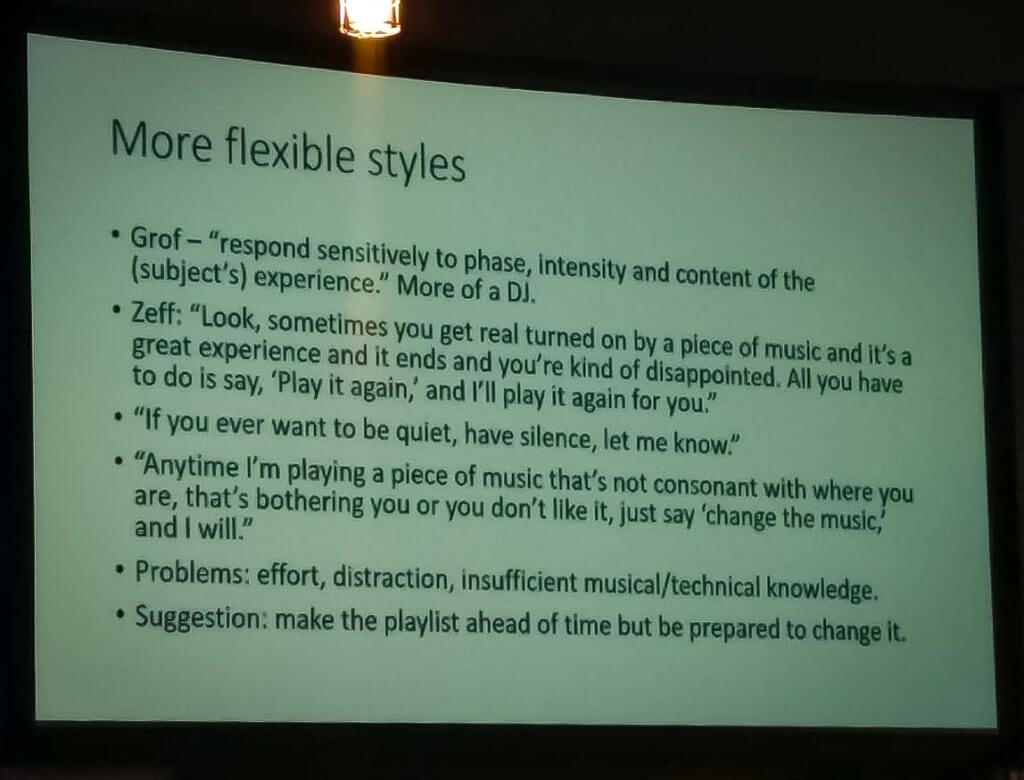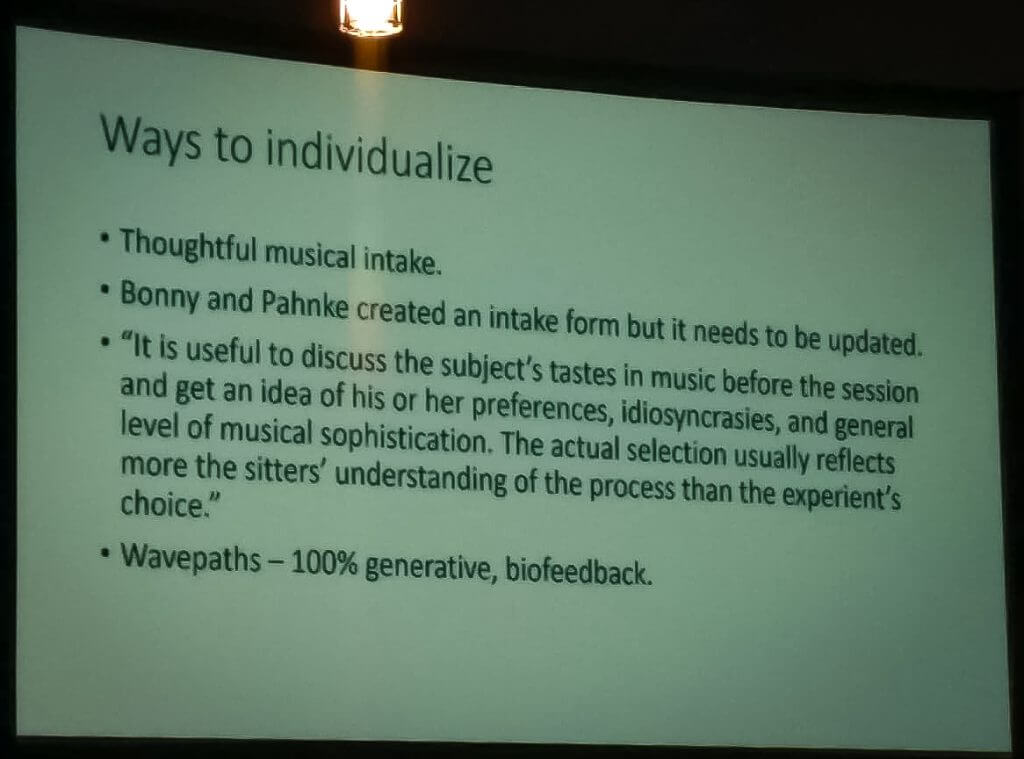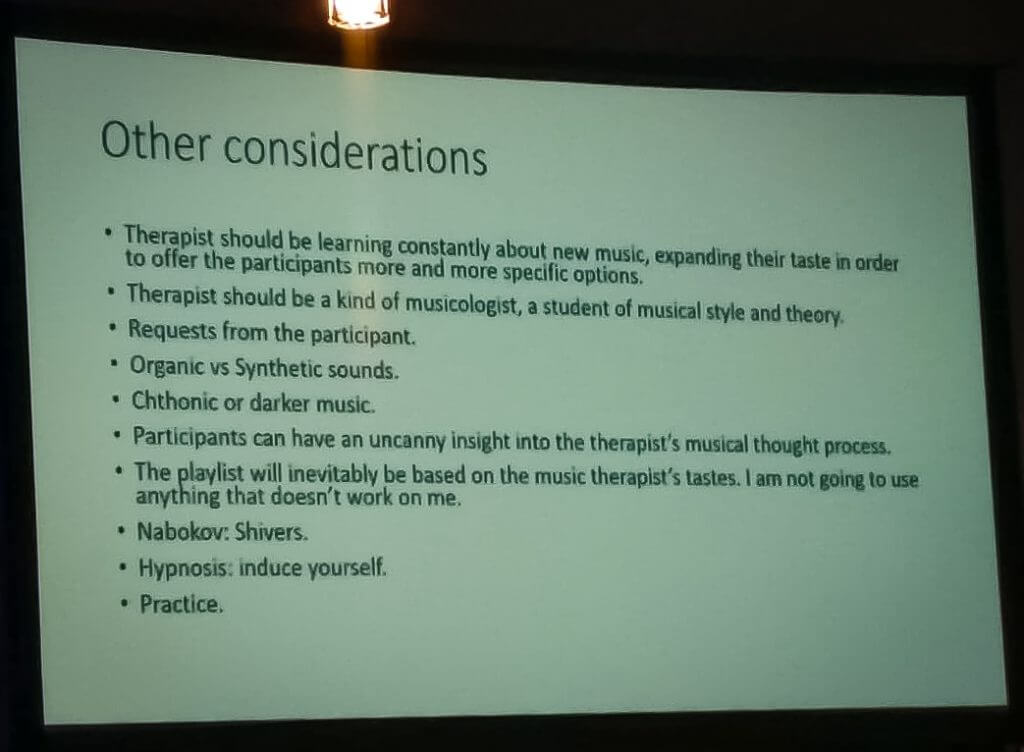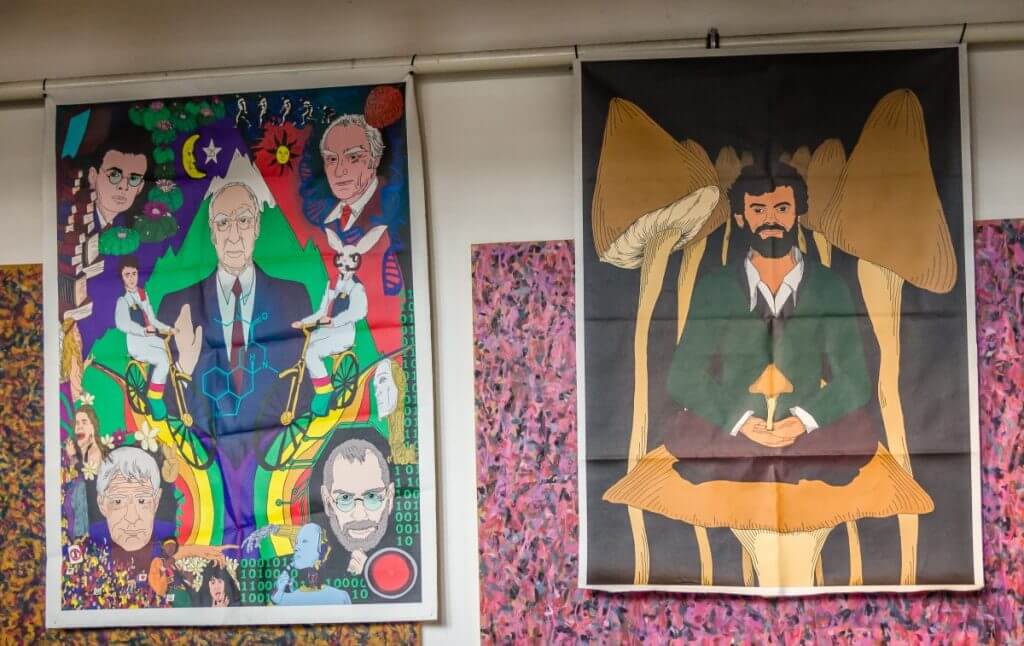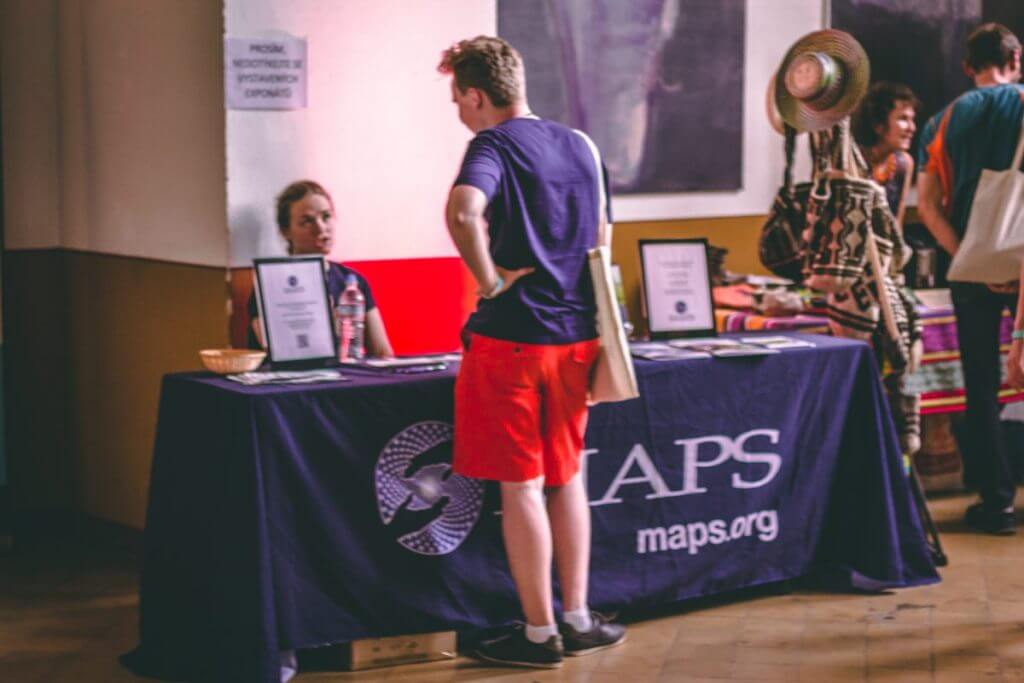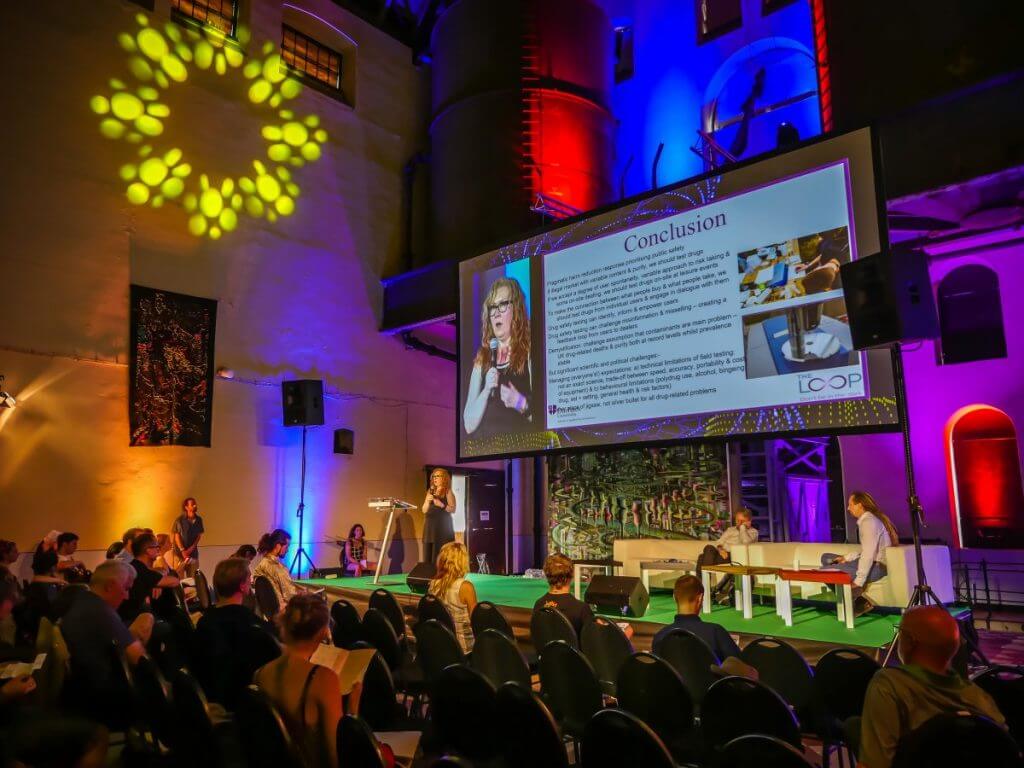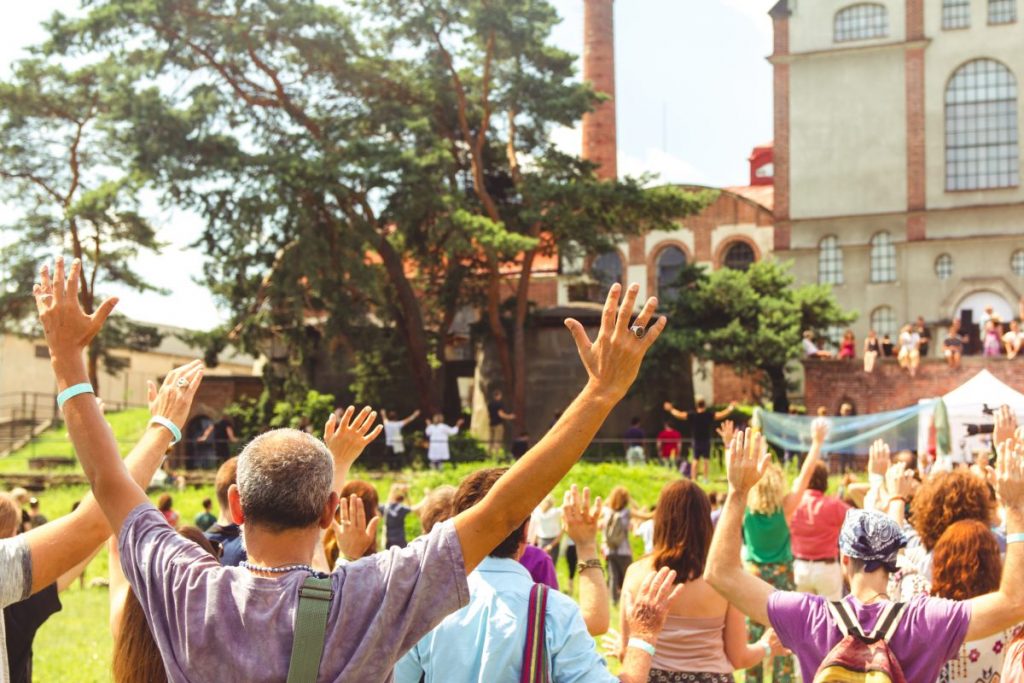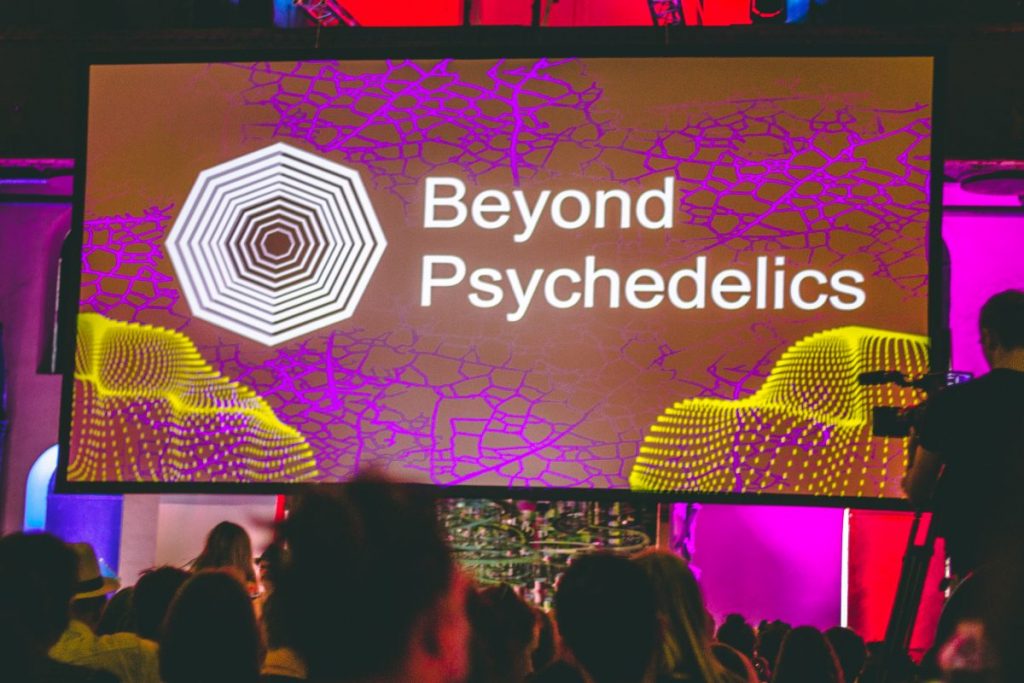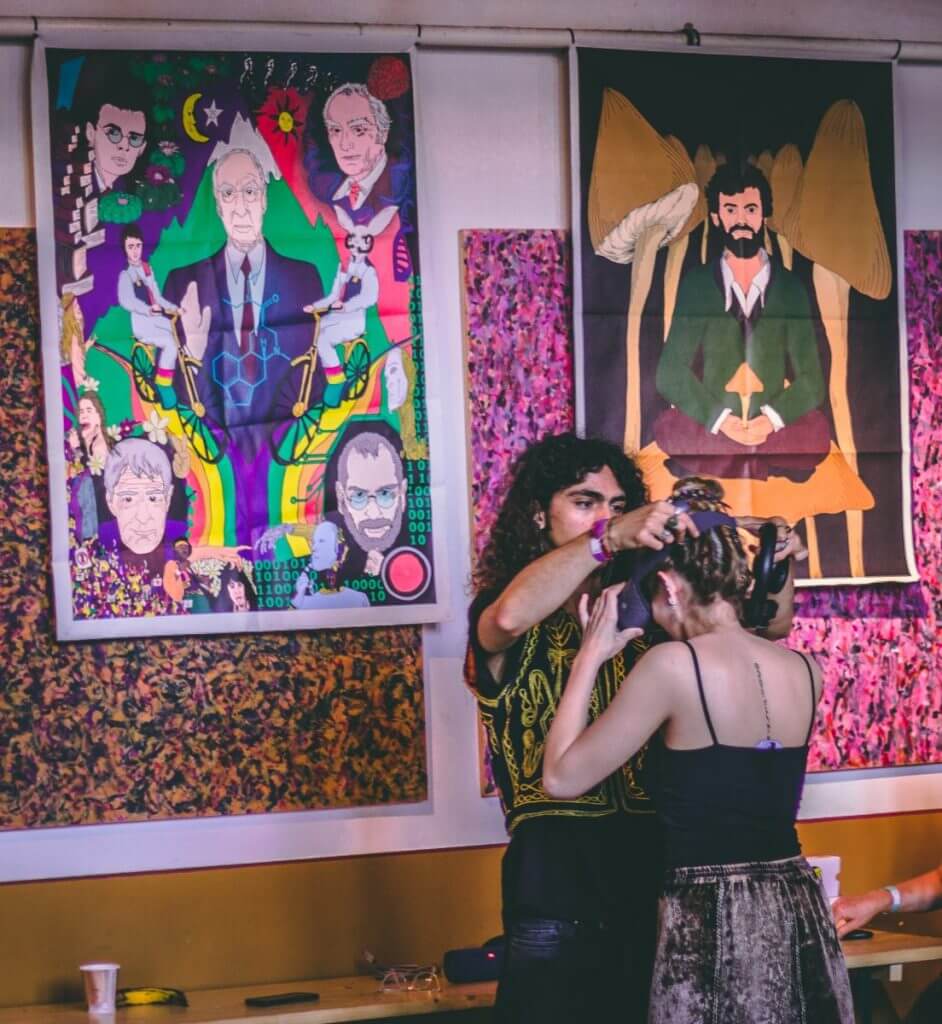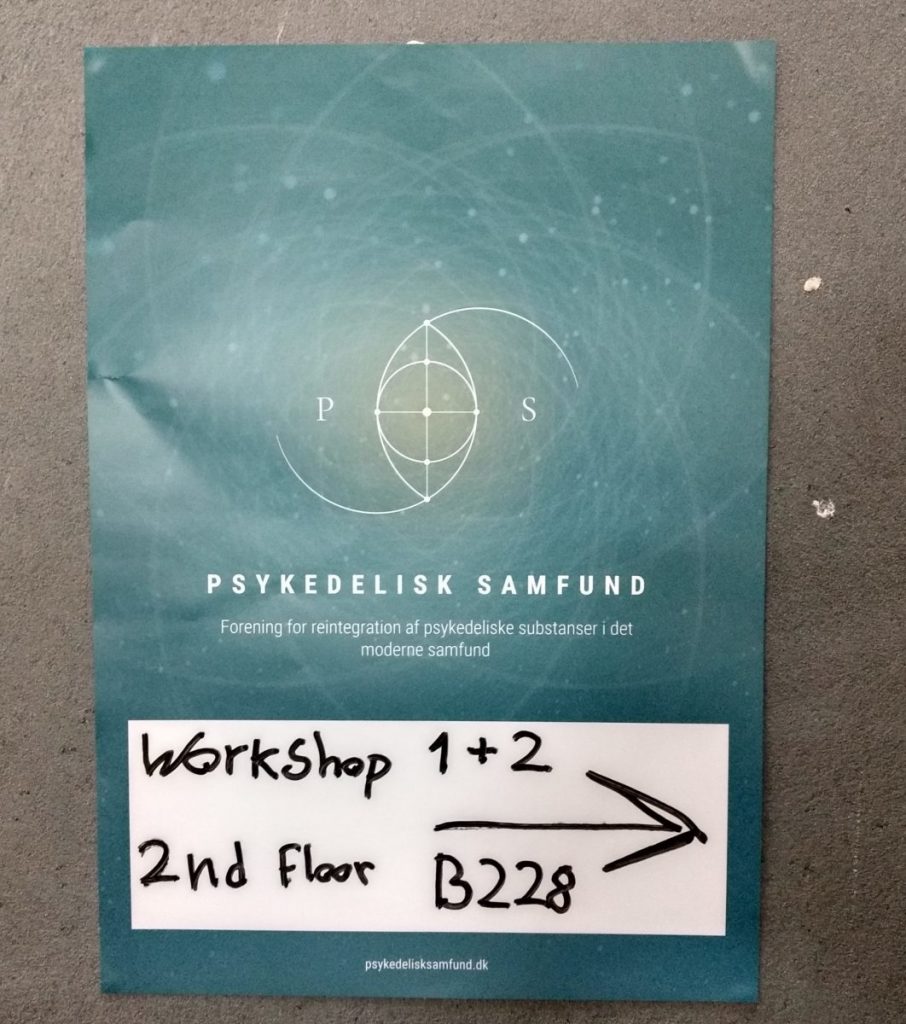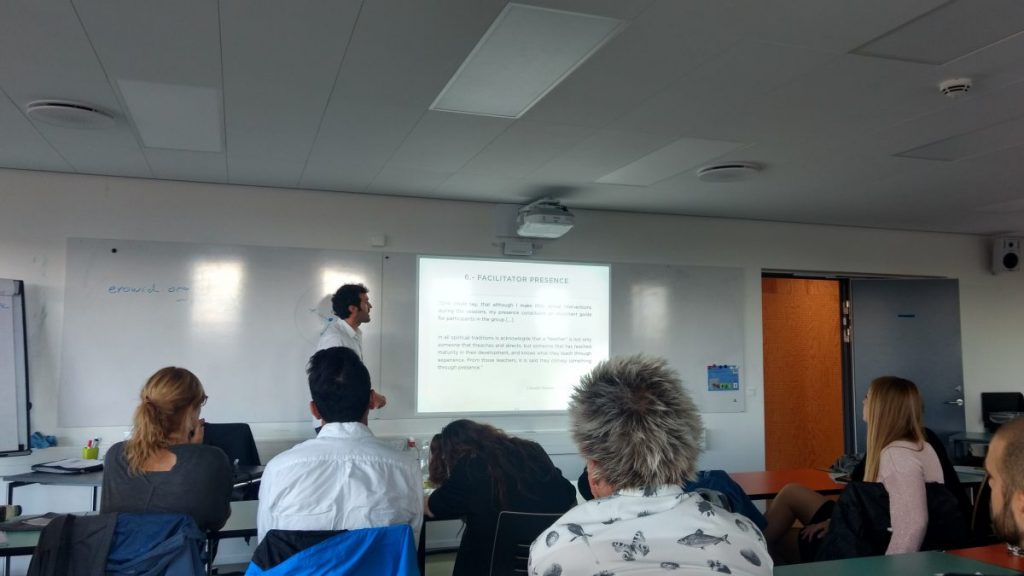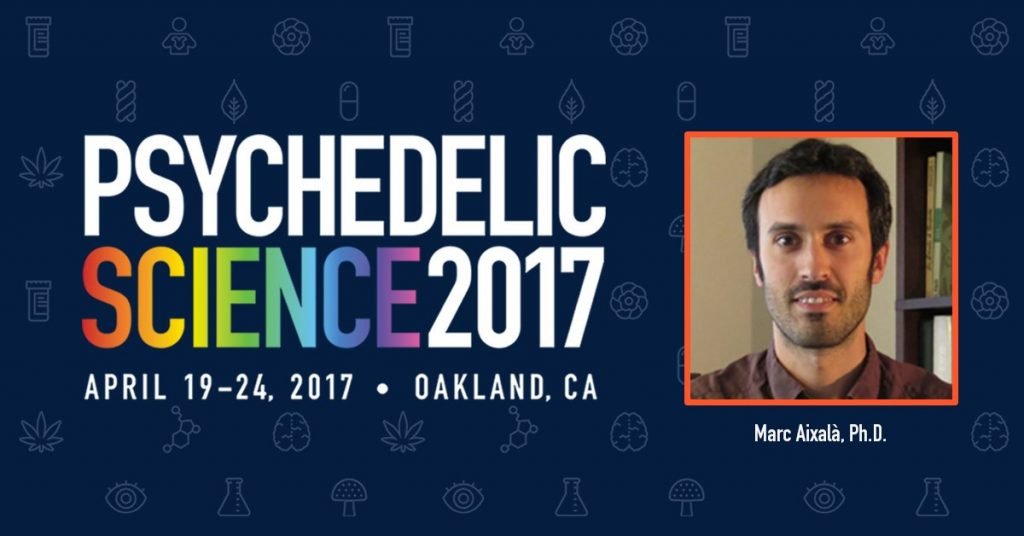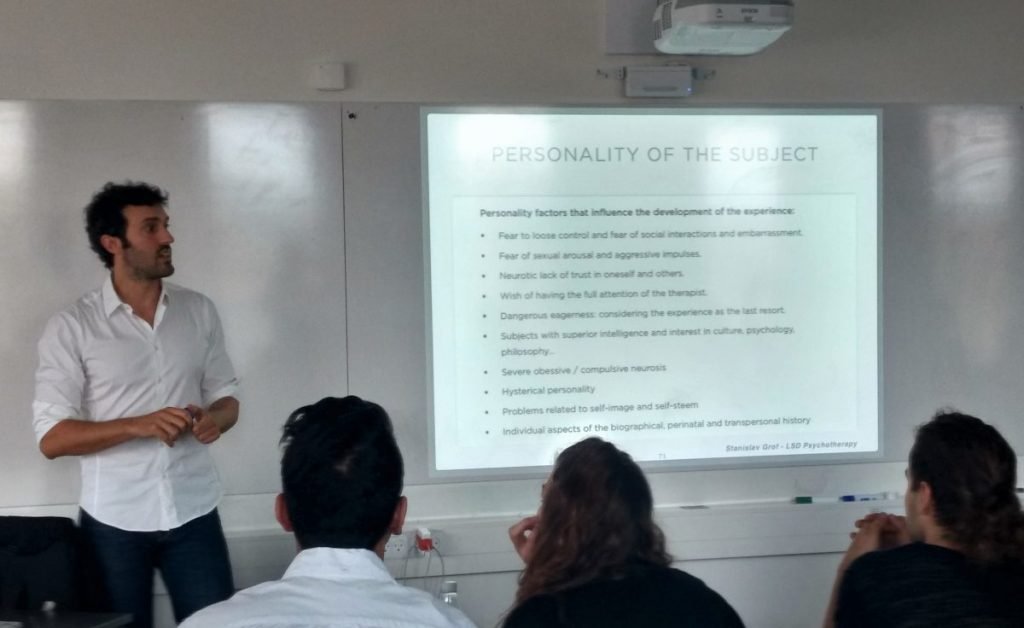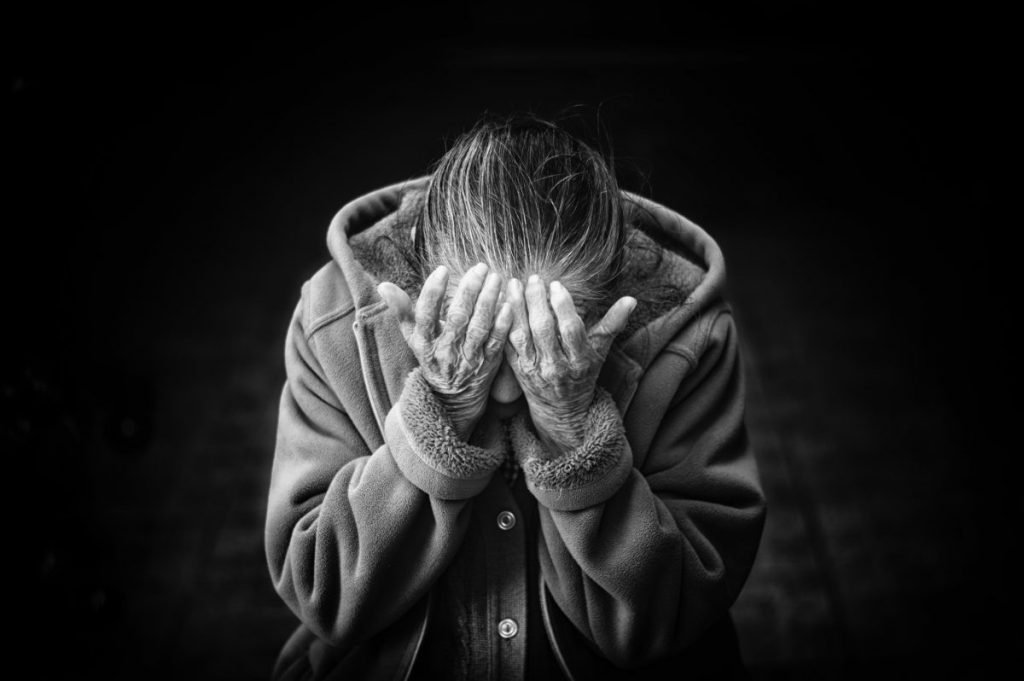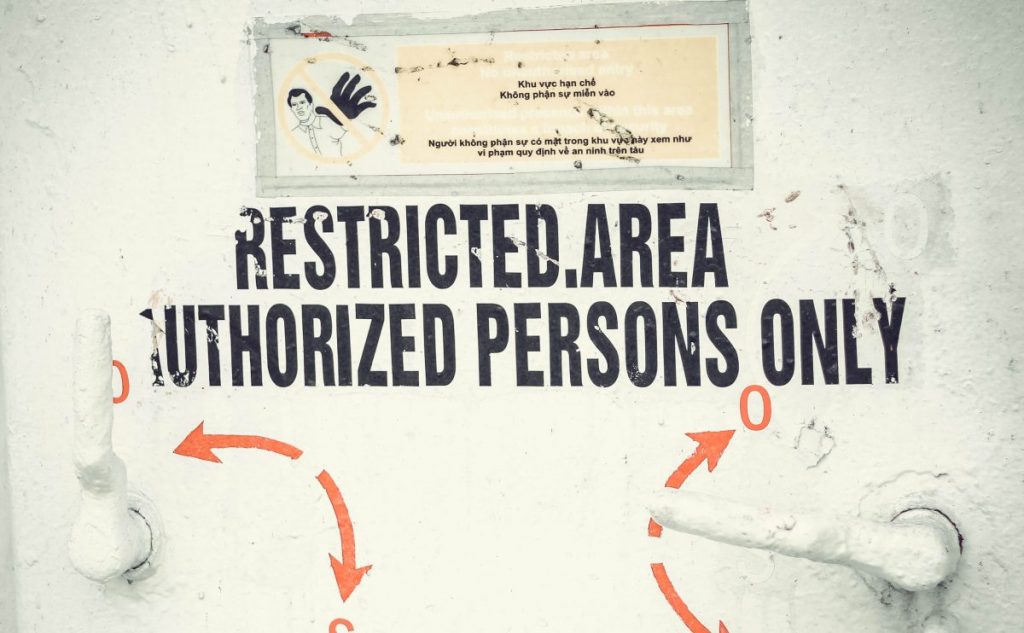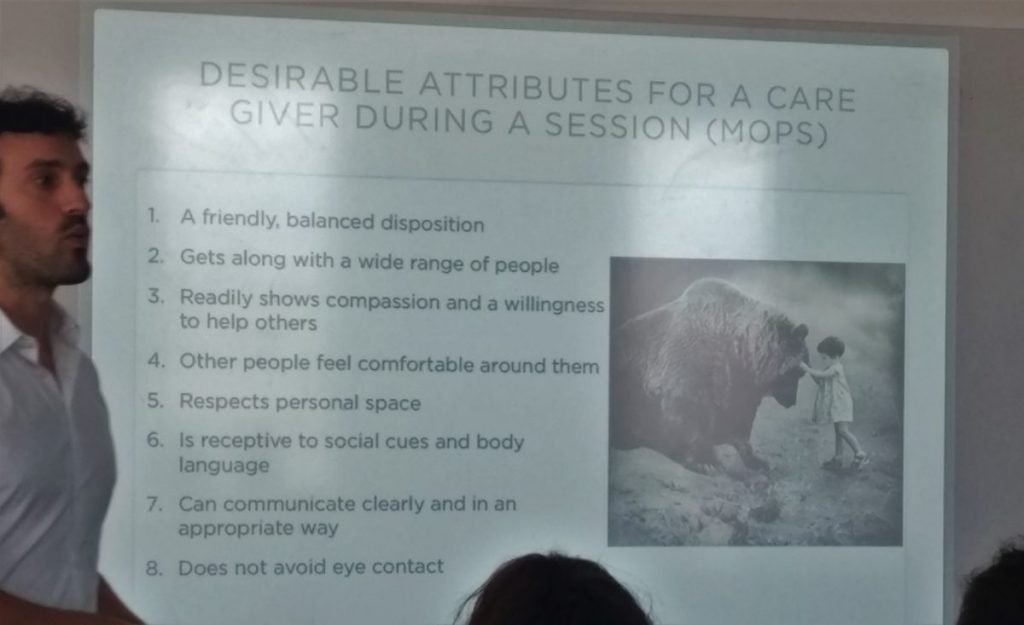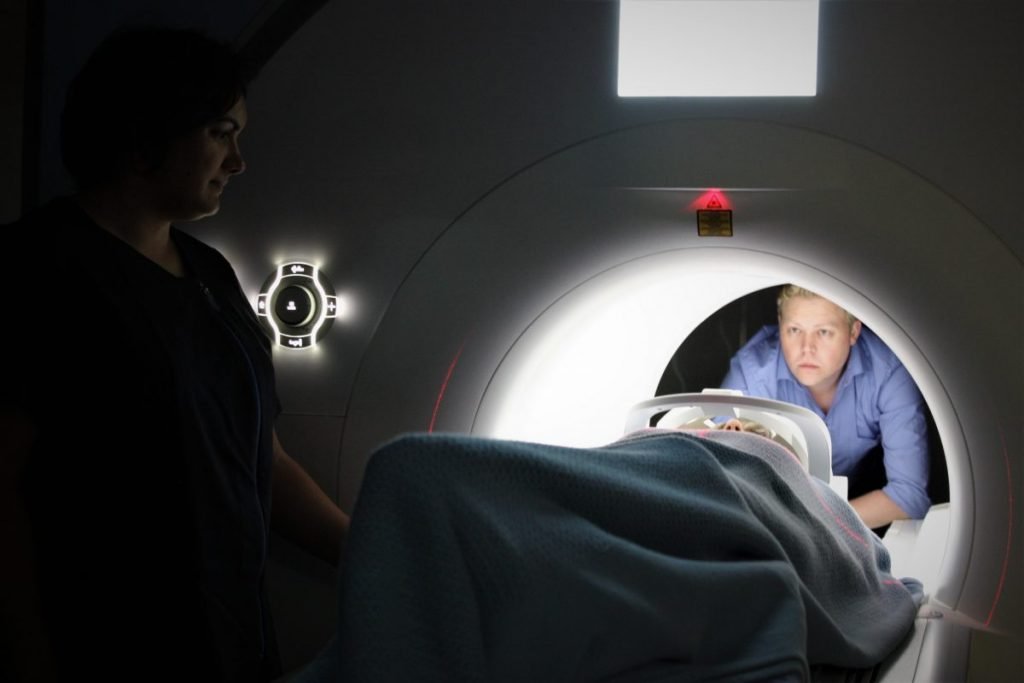At the end of June I was at Beyond Psychedelics: a 4 day ‘global psychedelic forum’ in Prague. As well as catching talks and general mingling, I also gave a talk and filmed some short interviews for an online video series. Here I’ll give a brief and rambling account of this event, what I was doing there and some thoughts that it threw up.
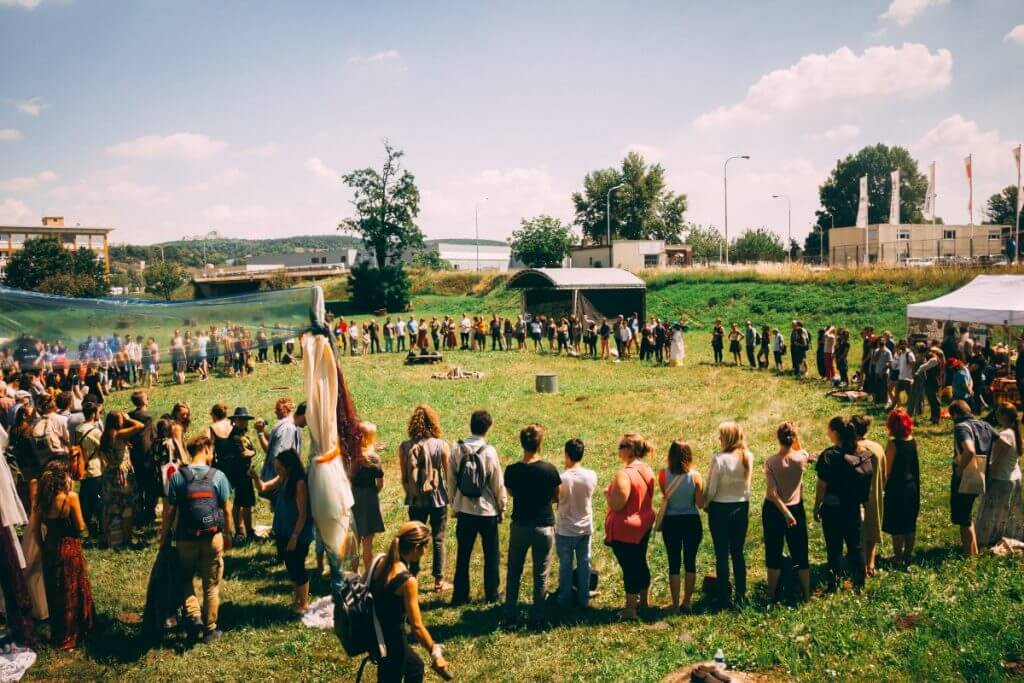
Opening ceremony preparations
Beyond kicked off on the summer solstice and the extended daylight hours helped to keep energy levels up for the intensively packed days. This was the largest of the three psychedelic conventions/conferences I’ve been to (one . two) and felt somewhere between a conference and a festival; the days were filled with 4 tracks (stages) of lectures, talks, workshops and panel debates, and the evenings had music, film screenings, and camp fires. Psychonauts, professionals, and enthusiasts milled around discussing talks and topics, sharing experiences and projects, exchanging contacts, and setting things up – it really seemed like a breeding ground for collaboration and I’m sure a few projects were birthed at Beyond. There was also some clearly non-theoretical exploration of substances *ahem*.
Giving A Talk
I gave a talk at Beyond (watch it here) and it was my first time doing public speaking. Honestly, I was nervous as shit. The whole process, from thinking about submitting an abstract (brief, talk submission) to finishing my talk and stepping off the stage, was spread over a few months and was a new and absolutely rewarding experience. The steps went something like this: see a call for abstracts on the Beyond website, think ‘maybe I should do that’, google how to write an abstract, write and submit one, get accepted (both excitement and nervousness here), prepare the slides, practice the talk, and booyah, I’m going to give my first talk at a conference (… more nervousness here). I gave the talk, titled Honesty & Psychedelics: Acknowledging The Sham Shamans, to a fairly full tent on the first day and I’d say it went OK for a first time. I’ll write more about the whole process and a written version of the talk in separate posts.
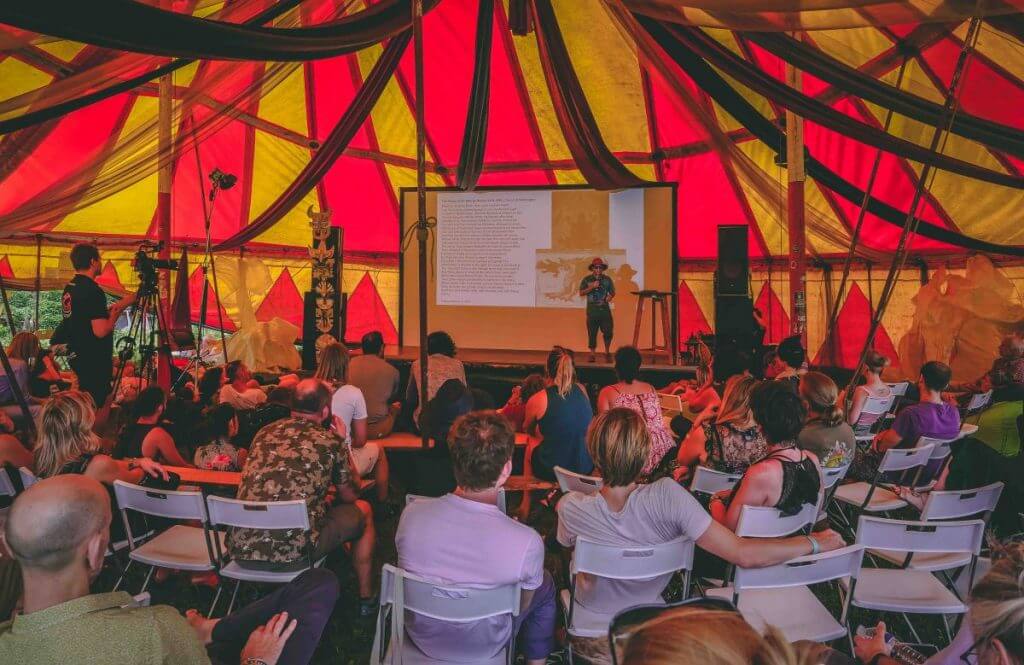
Another talk in the chapiteau
Mixed Crowd
Beyond had speakers from an impressively wide range of disciplines; scientists to shamans and artists to academics – it seems nothing is beyond psychedelics- and this brought out a similarly wide mix of people. This diversity was intentional, with organisers aiming to encourage discussion and facilitate an exchange of ideas and information from different fields. The mix made for a nice melting pot of perspectives and great conversations in the panel debates and also generally with people around.
There was a gently buzzing atmosphere about the event – I’m not the only one who gets excited about a topic as broad and mind-bending as psychedelics – the buzz stoked by the knowledge that we’re going through major and accelerating shifts in the world, and I believe that this group, subculture, community – whatever it is – are on one of the most significant frontiers of change.
Psychedelics Have A Role To Play
With serious research back underway, psychedelics are starting to re-enter the mainstream through psychology and neuroscience, but the ripples from this will have far reaching cultural and philosophical implications across individual, societal and global levels – from how we organise ourselves as a species on our technologically connected global brain that is the planet, to our fundamental understanding of the universe and place in it. Things are changing increasingly rapidly through all kinds of technologies, emerging: tech, AI, VR, blockchain/crypto; and the lost but re-emerging: psychedelics.
“In one of my early books I suggested that the potential significance of LSD and other psychedelics for psychiatry and psychology was comparable to the value the microscope has for biology or the telescope has for astronomy. My later experience with psychedelics only confirmed this initial impression.”
– Stanislav Grof
The Psychedelic Golden Age Is Now
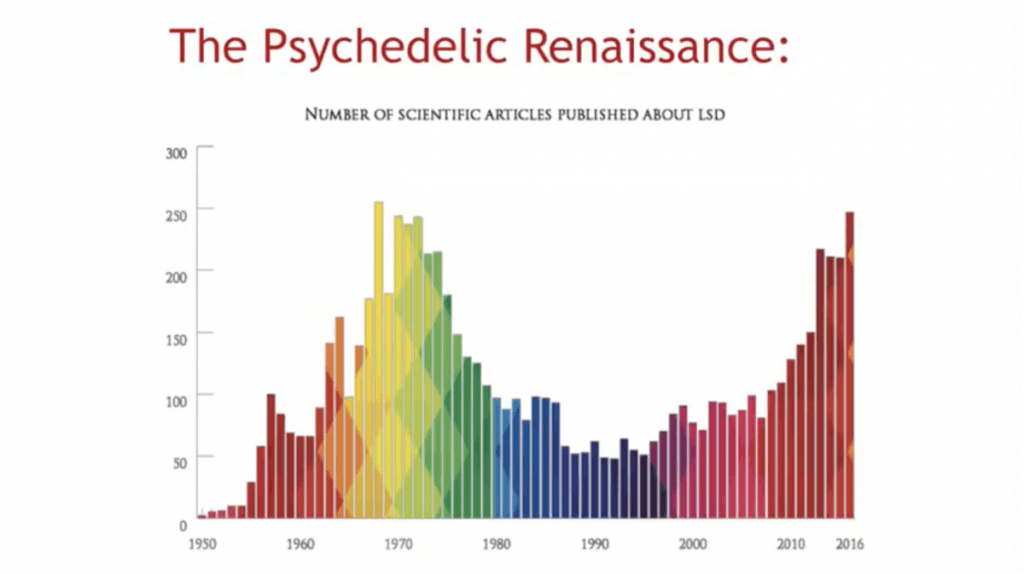
A slide from Ben Sessa’s talk
People look at the sixties as the golden age of psychedelic use and research but in an inspiring talk about MDMA therapy, Dr. Ben Sessa pointed out that today there is both more research going on and more people taking psychedelics than back in the sixties; today is a true psychedelic renaissance. Wrapping up, Sessa addressed the younger generation in the audience who are thinking of working in the field and might have been told by tutors or others that it is career suicide. He said that the naysayers who think this is woo-woo stuff need to open their minds:
“This is not hippie stuff, this is not some fringe thing, this is mainstream medicine, this is cutting edge neuroscience, every major teaching and neuro academic institution around the world are looking at psychedelic programmes nowadays: Yale, Harvard, NYU, UCL, UCLA Johns Hopkins, Imperial College London […] and we’re getting monthly papers published in mainstream journals like The Lancet, BMJ, British Journal of Psychiatry, BAP […]”

The institutions and journals with psychedelic research – another slide from Sessa’s talk
The scientific credibility of such institutions and their research will surely help to overcome one of the biggest challenges for the movement: the social stigma. And though the science is obviously important, often the most moving and intriguing parts of researchers presentations are quotes from participants about their experiences. The stats and charts provide the logos, but its people’s stories which deliver the pathos. This humanizes the topic and speaks to people on an emotional level. Which brings me nicely to the videos I was filming there….
Breaking The Stigma: Fun Psychedelic Interviews
I was volunteering at Beyond filming a video series of short interviews. The aim of the series is to help humanise the topic and break the stigma by getting people in the movement to speak about psychedelics and their experiences in a relaxed and fun way, with hopes that this will encourage other people to too. My interviewees included MAPS man Rick Doblin, occultist Julian Vayne, the UK psychedelic society’s Stefana Bosse, and grassroots researcher Darren Le Barron. Some of the questions included:
- Weirdest thing to ever happen during a trip?
- If you could only ever trip with one person again, who would it be?
- Which one person or group of people in the world having a psychedelic experience do you think would have the greatest benefit on humanity
- Favourite things to do whilst tripping?
- Psychedelic that has had the largest impact on your life?
- If you could only ever take one psychedelic again, which one would it be?
This is actually some other people doing a video interview – a lot of press there
I’d had the idea for this sitting around for a while and seeing Beyond as a perfect opportunity to get a bunch of these, I emailed the organisers to see if I could do it there and release the videos through their channels. They liked the idea so I filmed a bunch, and they’ll start going up on the Beyond Psychedelics channels soon (I’ll link them here when they’re up). This was fun and something I’d like to continue so if you’d be open to speaking about your psychedelic experiences on film, let me know and I’ll interview you at some event or if we find ourselves in the same city.
I’ll summarise here briefly by stating that Beyond was a highlight of my year so far. To wrap up and give an idea of the variety of the talks, here’s a brief overview of my favourites – some by quote, some by picture, some I’ve written about. More info on talks can be found on the Beyond site.
Challenges To The Mainstreaming of Psychedelics In The 21st Century
– Rick Doblin .
“We’re at the stage where we can envision the mainstreaming of psychedelics and we can see drug policy changing across the world, it’s also very possible for us to screw up and snatch defeat from the jaws of victory.
“This is my favourite quote: ‘there’s many a slip twixt the cup and the lip’. You think that you’re right about to succeed and that’s when people get over confident and make mistakes because they’re not paying attention. We need to talk with each other, critically and think about how we can move forward carefully. Where we are at this stage is this incredible renaissance of psychedelic research, even in therapeutic applications there is more research now than at any time in the last 50 years, that the doors are opening at regulatory agencies all over the world.
“The key thing here is that we need to build bridges not burn them. One of the ways in which we build bridges is look at where support comes from […] We have to reach out to people on the other side of the political divide and built bi-partisan support and recognise that it’s a two way communication. […] So I think it’s so important if we are going to mainstream psychedelics that we build these bridges.”
Charging for Ceremony: Polemics Around Money In Shamanism
– Jerónimo Mazarrasa .
Should people be charging money for ceremony? Is work with entheogens too sacred to be dirtied with money? Good question, heavily disputed. Jeronimo gave a range of examples of different practices and perspectives on this. A couple of examples:
- Medicine should not cost money; it should be accessible to all. By putting a price tag on it you are restricting access to certain people. You should keep your financial stability separate from your work with medicines. If you need money to survive, stop working with the medicines and find your income elsewhere.
- You’ve spent years learning and training and it’s fair that you are reimbursed for your time and energy. Getting paid is important for you to work to the best of your ability as it allows you to remove other distractions such as working a day job.
Jeronimo didn’t offer any ‘right’ answer but did suggest something that might be useful – transparency. He gave the example of a magazine which in every issue, listed all of its expenses – from the costs of the cleaners for the office to the rental space to the writers – so the readers could see exactly where their money was going. I really like this idea, indeed I believe there should be more transparency in our world – especially around money and politics. My mum always talked about a politician she liked because he would always publicly publish his expenses list – there is no room for scandal and outrage when there is total transparency.
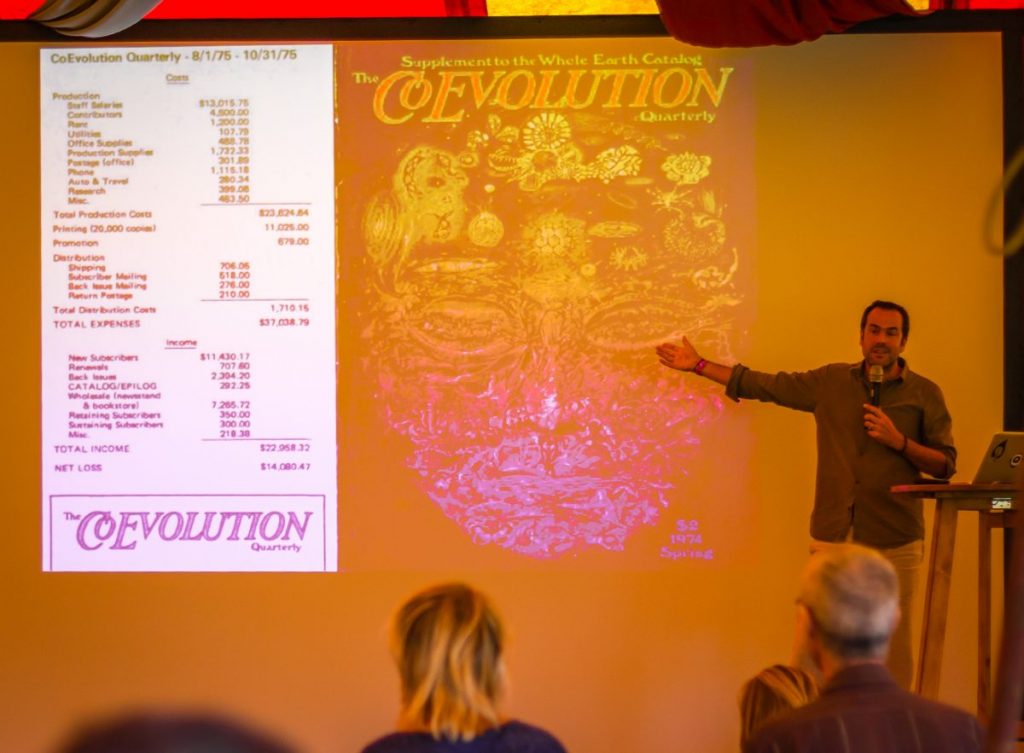
Jerónimo with an example of transparency – a magazine that published all its expenses
Transparency doesn’t get to the issue of accessibility though, and if access to the medicine relies on finances, the people who arguably need it the most, won’t be able to get it.
This could be solved if these substances were available as part of a publicly funded service – a national health service. Or simple legalisation would allow people to cultivate and pick their own.
Until legalisation I think we should look to scholarship and sponsorship programs to enable people with low income access. Something like the vipassana model – which is totally donation based and all workers are volunteers – might also be something worth looking at.
View Jeronimo’s talk here
Sacred +
– Vincent Moon
I got excited when I saw Vincent Moon’s name on the lineup for Beyond. Moon is a French filmmaker whose work usually involves musical groups or musicians and was a source of great inspiration and distraction during my time as a media student when I used to devour music documentaries and music videos. As part of the pre-conference event week, I saw his latest film project: Sacred + : a live mixed cross cultural film centred around the sacred, using footage he’s collected of rituals around the world over the last few years. Watching at a cinema in the centre of Prague, I remembered exactly why I was obsessed with his work, and stepping out of the screening felt inspired again for film work. The next day I bumped into him in the queue for wristbands and we got chatting, I told him how his work both helped and hindered me to which he apologised with a smile. And he also gave me his business card – not gonna try to be cool here; Vincent Moon gave me his business card – that was pretty awesome.
Child Abuse, Trauma, MDMA Therapy and The Future of Medicine
– Ben Sessa
In a brilliant and passionate talk, Sessa gave an outline of the use and efficacy of MDMA as a tool for trauma psychotherapy.
In the end, he brought back home the importance of the work and reminded us that these substances can be used to help those desperately in need of it: those that the current system victimizes and treats as scourge who live on the street. They should not be victimised but helped, and psychedelics are some of the most powerful tools we have to do that.
Psychedelic Philosophy
The talks were split into blocks based on themes and this 90 min block composed of 4 talks was probably my favourite of the whole thing, definitely could’ve been longer.
1. Philosopher of mind Peter Sjöstedt-H spoke on the British inventor and ‘chemical philosopher’ Humphry Davy’s use of nitrous oxide…
“I have often felt very great pleasure when breathing it alone, in darkness and silence, occupied only by ideal existence.”
– Humphry Davy
2. Reanne Crane on favourite psychedelic author Aldous Huxley, using his work to explore how psychedelic integration depends on the narratives with which we frame our experiences – there are events, and then there are the stories we tell ourselves about them. Crane ended by celebrating a relatively unsung Huxley – Laura Huxley – and her work You Are Not The Target: A Practical Manual of How to Cope with a World of Bewildering Change, a ‘classic integration text’, a welcome addition to my to-read list.
3. Anna Freudenthaler looking at psychedelic states using Freudian concepts – full written version can be found on her blog here.
4. Johanna Hilla on Carl Jung and how in his Red Book he portrays altered states of consciousness as meaningful and transformative, with a look at the claims arguing that the true intention of Jung was to construct his own religious worldview.
The Art Of Creating Musical Playlists For Psychedelic Work
– Matthew Baldwin
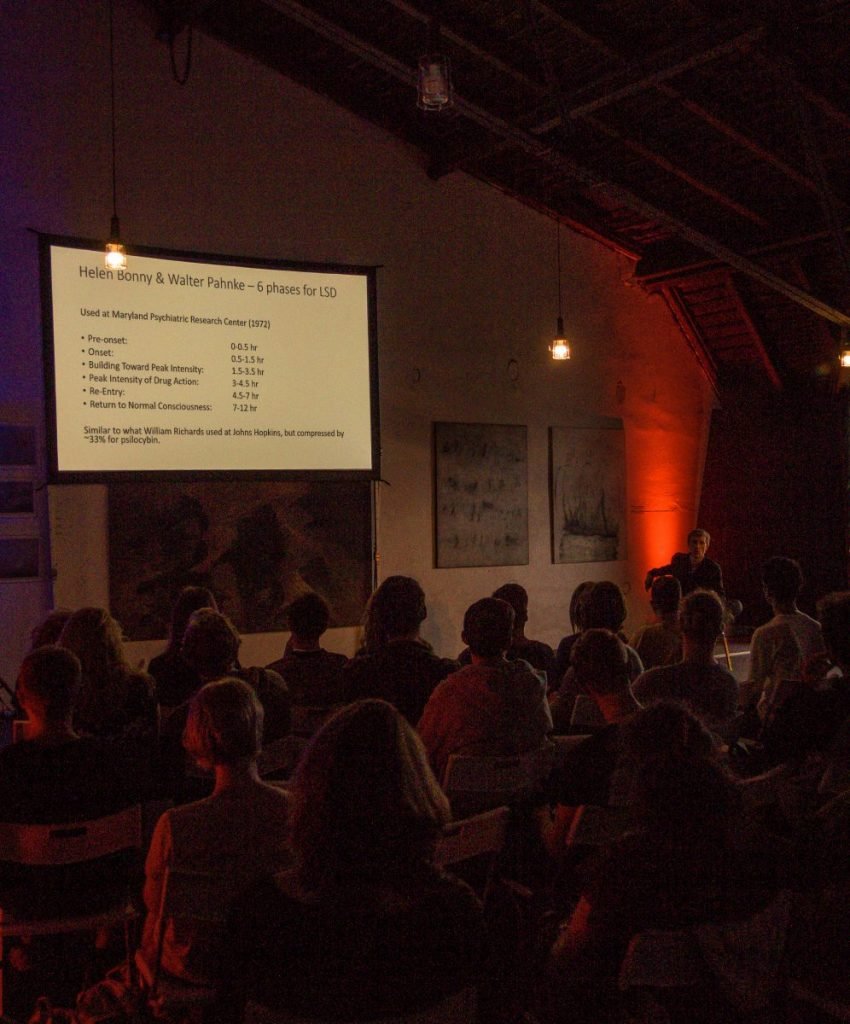
In the attic
Super interesting topic – music can play such a huge role in a psychedelic experience and knowing how to manipulate this variable is huge. OK I’m outta steam and done writing so let’s finish with some slides and pics:
Still here? Here are a few more pictures…

